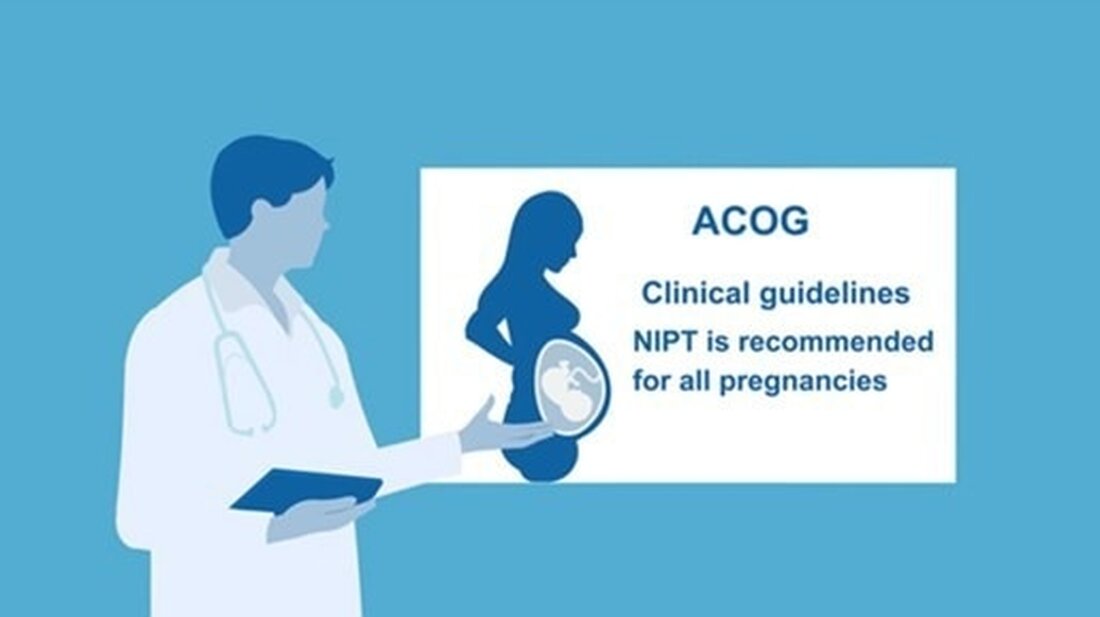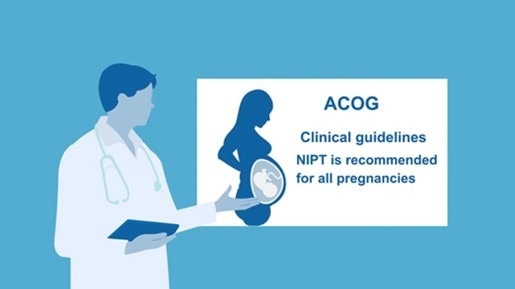What Parents Need to Know About Prenatal Testing | BGI perspectives
The birth of every new life must be celebrated! Expectant parents are often encouraged by doctors in the Department of Gynecology and Obstetrics to consider noninvasive prenatal testing (NIPT). Parents often have many questions regarding the potential benefits of prenatal screening and make an informed decision to better understand the health status of the mother and child. To support this process, BGI, one of the world's leading providers of NIPTs, consults our internal experts to answer these recurring questions. Q1 What is NIPT? Why is NIPT considered a non-invasive test? NIPT, also known as non-invasive prenatal screening...

What Parents Need to Know About Prenatal Testing | BGI perspectives
The birth of every new life must be celebrated! Expectant parents are often encouraged by doctors in the Department of Gynecology and Obstetrics to consider noninvasive prenatal testing (NIPT). Parents often have many questions regarding the potential benefits of prenatal screening and make an informed decision to better understand the health status of the mother and child. To support this process, BGI, one of the world's leading providers of NIPTs, consults our internal experts to answer these recurring questions.
Q1 What is NIPT? Why is NIPT considered a non-invasive test?
NIPT, also known as noninvasive prenatal screening (NIPS), is a screening test used to evaluate the risk that the fetus will be born with certain genetic abnormalities or chromosomal disorders, such as: B. Down syndrome (trisomy 21), Patau syndrome (trisomy 13), and Edwards syndrome (trisomy 18).
This test analyzes small fragments of DNA circulating in a pregnant woman's blood, called cell-free DNA (cfDNA). NIPT is considered non-invasive because it only requires drawing blood from the pregnant woman to test whether a fetus has a genetic disease and poses no risk to the fetus, giving expectant mothers the greatest peace of mind with a single blood draw.
Q2 Who should choose NIPT?
The latest guidelines from the American College of Obstetricians and Gynecologists (ACOG) Recommend that non-invasive prenatal testing (NIPT) be made available to all pregnant women, regardless of maternal age or baseline risk.
NIFTY - BGI's NIPT solution - is suitable for most pregnant women from the 10th week of pregnancy, with a few special cases. BGI is committed to providing care to more pregnant women from diverse reproductive backgrounds, such as: B. Singleton pregnancies, twin pregnancies and pregnancies with in vitro fertilization (IVF).
The American College of Obstetricians and Gynecologist guidelines recommend NIPT for all pregnancies.
Q3 What conditions can NIPT test for?
It's important to remember that NIPT is a screening test - not a diagnostic test. This means it cannot diagnose a genetic condition with certainty. However, it can predict whether the risk of a genetic disease is high or low.
NIFTY offers comprehensive prenatal screening options including trisomy 21, trisomy 18, trisomy 13, sex chromosome aneuploidies (XO, XXY, XXX, XYY), rare autosome aneuploidies (trisomy 9, trisomy 16, trisomy 22) and other aneuploidies.
Q4 Can NIPT be expanded to screen for a broader range of diseases?
BGI is working to improve screening technologies and reduce the cost of sequencing and analysis to significantly expand the scope of prenatal screening beyond common autosomal aneuploidies such as copy number variations (CNVs).
The number of copies of small sections of our genome can have major consequences, and evidence is accumulating CNVs play an important role in human diseases. NIFTY Pro can now assess the risks of 84 types of CNVs and we are working to expand the scope of CNV detection.
NIFTY offers tests with lower blood sampling.
Q5 What is chorionic villus sampling (CVS) and amniocentesis?
CVS is a prenatal test in which a sample of the chorionic villi from the placenta is removed for testing. The sample can be taken through the cervix or abdominal wall.
Amniocentesis is a procedure in which amniotic fluid is removed from the uterus for examination or treatment. Amniotic fluid is the fluid that surrounds and protects a baby during pregnancy.
CVS and amniocentesis are diagnostic tests that can determine with the greatest possible certainty whether the fetus has a specific genetic disorder or disease.
Both tests are invasive procedures that carry various risks for the expectant mother and fetus, including the risks of miscarriage, needle injury, infection, etc.
Q6 How is the privacy of the expectant mother protected?
The patient's information and NIFTY test results are kept confidential and all data remains anonymous during analysis. Only the patient's doctor receives the test results.
BGI will not retain personal information longer than is necessary to provide these testing services, please read the BGI Privacy Policy for more details.
YouTube video: NIPT offers non-invasive and thorough prenatal screening
.

 Suche
Suche
 Mein Konto
Mein Konto


